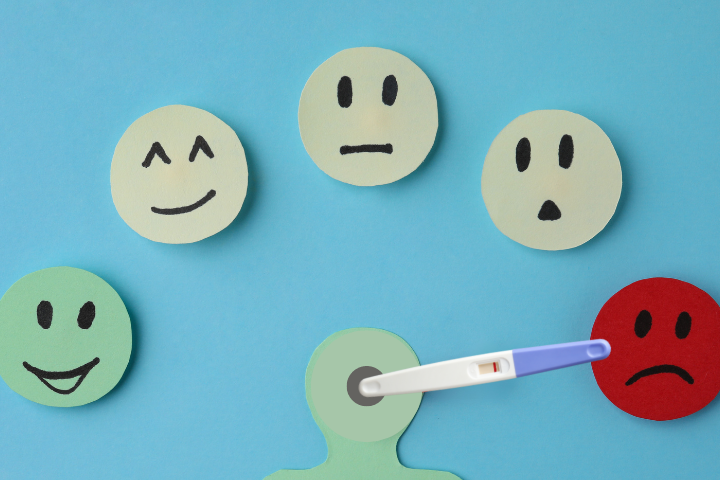The journey to having a baby when you’re dealing with infertility can be a long and emotional one. But when you are successful and become a parent, the journey doesn’t end there. Your experiences with infertility don’t suddenly go away, and you can find yourself still processing them and being affected by them as you raise your child. Parents who have been through difficult fertility journeys often feel that they have different approaches to parenting or different attitudes. Their experiences inform the way they think and feel, and how they choose to parent.
Getting a good balance and taking a healthy approach to parenting when you finally have your precious baby can be difficult when you’re still processing the trauma of infertility. But there are steps you can take if you want to parent in a healthy way.
Keep Talking About Infertility
When you have your baby, other people might see it as a happy ending to a long journey that can now be put to bed. But you probably realize that the experiences you have had (often over many years) aren’t just going to go away. They could always be with you and they can influence how you think and feel. It might seem like you should be able to put them behind you, but trying to ignore what you’ve been through is unlikely to help you.
Instead, you should try to keep talking about infertility and how it’s affected you. From talking to your partner or your friends and family to discussing it with a therapist, it’s helpful to continue talking about the subject. You might choose to remain a member of a support group or stay friends with others who were with you on your fertility journey. Of course, it might be something you talk about less as time goes on. But you can find that there are always times when you want to discuss it, even if they become less frequent.
Dealing with Anxiety
Many parents who have experienced infertility can find themselves feeling anxious about various parenting issues. If you have experienced pregnancy loss, you could feel extra protective over your baby or worry a lot about something happening. Many women can experience anxiety and depression when dealing with fertility, and these don’t necessarily go away once you’re a parent.
It’s important to get the right support for feelings of anxiety or other emotional and mental health issues you might be struggling with. All parents experience some worry and anxiety, but letting that anxiety control how you parent isn’t something you want to do. If you feel you need help, you might find it useful to speak to a professional about how you’re feeling.

Learn About How Babies Develop
People who have experienced infertility have often had a lot of time to think about how they want to parent and learn about babies. However, you might also have spent so long concentrating on getting pregnant and finally having a baby that you haven’t taken a lot of time to learn about baby development and what things will be like after your baby is born.
Learning about how babies develop can help give you the tools and knowledge you need to understand your baby as they grow. Understanding the 3 month development milestones to look for, what’s “normal” and what might not be, and the best ways to engage with your baby’s development can all help you parent in a healthy way. You can avoid anxiety about whether your baby is developing at the right pace and have a better understanding of when you should talk to a doctor or another professional and your concerns.
Keep Learning About Yourself and Infertility
Perhaps your fertility journey is over and you’re ready to focus on being a parent. But you should still allow yourself the time and space to continue learning about yourself, about infertility, and about how experiencing it affected you. You could still have a lot to unpack and you might not fully understand just how infertility has changed you. You might think and feel things you don’t really understand at first. Maybe you still find yourself feeling jealous when someone else announces a pregnancy, for example. Continuing to explore these feelings and why they happen can help you ensure you’re still dealing with everything in a healthy way.

Consider Your Parenting Style
Your approach to parenting is something that you might want to consider carefully after your experiences with infertility. You might have given a lot of thought to your parenting philosophy and how you think children should be raised, but what will your parenting actually look like? Many parents who have experienced fertility problems admit that it leads to them overindulging their child or perhaps being overprotective.
While there are definitely occasions when children deserve to be spoiled and when your concerns about certain dangers might be valid, it’s also essential to consider when it might be too much. Thinking about the sort of parent you want to be and whether your trauma from infertility could affect your ability to do that is one of the steps you might want to take. Maybe you have a lot to think about in terms of what you think is healthy parenting and what behaviors you would like to avoid.
Avoid the Need to Be Constantly Positive
After fighting so hard to become a parent, you might feel like you can’t ever complain about it. After all, this was something that you wanted for a long time. However, there’s no need to feel like you have to be relentlessly positive. In fact, doing so could end up causing more negative feelings. All parents have annoyances or things they might not enjoy about being a parent. A long and sleepless night or dealing with a tantrum aren’t exactly pleasant things. It can be healthy to complain about the little things, as well as the big things. And it doesn’t mean you’re not grateful or don’t love being a parent. It can still be the best thing that ever happened to you, even if it’s not always sunshine and rainbows.
Care for Other Relationships
Focusing on bonding with your baby is important when you become a parent. But it’s also important that you take care of other relationships in your life too. Whether that’s the relationship with your partner or those with your relatives and friends, having other people around you and a solid support system is beneficial. Your baby might be your whole world, but you still need to have connections outside of being a parent. In fact, it’s especially important when you’re a new parent who needs emotional and practical support. Maintaining relationships with others is good for you and can make you a better parent too.
Treasure Every Moment
Of course, the one thing you probably want to do is treasure every moment of being a parent. That doesn’t mean you have to be happy all the time or you can’t ever complain about the less-than-pleasant stuff. But you should take the time to make the most of the gift you’ve been given and enjoy every moment as much as you can. Sometimes it’s worth it to spend a few extra moments cuddling your baby instead of getting up to do the laundry, or to spoil your child a little to see them happy.
After the challenge of infertility, parenting can be a challenge too. However, it’s one that you can really relish, even if you’re still working through the effects of infertility.
If you would like to learn more about GENESIS Fertility New York or are ready to schedule an appointment, please speak with one of our representatives at 929-605-5467.





